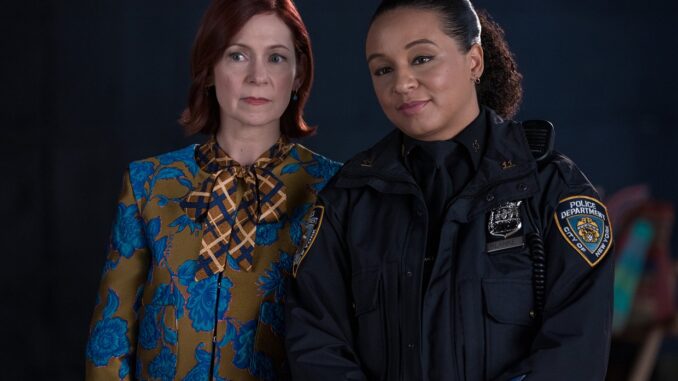
The Untangling: A Feminist Friendship Between Elsbeth and Kaya
The cafe was a haven, buzzing with the low hum of conversation and the clinking of ceramic. For Elsbeth, perpetually hunched over legal briefs and anxieties, and Kaya, an artist fiercely committed to her craft and equally committed to dismantling patriarchal structures, it was a weekly ritual, a sanctuary built on shared coffee and fiercely independent convictions. Their friendship, however, was more than just caffeine and conversation; it was a vibrant testament to feminist solidarity, a tapestry woven with shared struggles, unwavering support, and the constant untangling of internalized expectations.
Elsbeth, in her crisp power suits and meticulously crafted arguments, embodied a certain kind of feminist success. She was a partner at a prestigious law firm, a force to be reckoned with in a male-dominated field. Yet, beneath the confident exterior, a constant hum of self-doubt reverberated. "Am I being aggressive," she’d often confess to Kaya, the anxiety laced in her voice, "or just assertive? They call me a 'ballbuster' behind my back, you know. Is that just… the price I have to pay?"
Kaya, on the other hand, navigated a different battlefield. Her art, bold and often provocative, directly challenged societal norms regarding female bodies, sexuality, and power. She faced criticism that was both personal and professional, dismissed as “angry” and “man-hating.” While Elsbeth battled the glass ceiling within a corporate structure, Kaya fought to be seen, to be heard, to be valued for her raw and unapologetic truth.
This difference in experience became the fertile ground for their unique brand of feminist friendship. Kaya, with her innate ability to cut through the noise, would listen patiently to Elsbeth's anxieties, offering not platitudes but incisive observations. "They call you a ballbuster because you're good, Elsbeth," she’d say, her eyes locking with Elsbeth's. "Don't internalize their fear. Use it." Kaya helped Elsbeth recognize the gaslighting, the subtle manipulations designed to keep her small, to silence her voice. She empowered Elsbeth to reframe the narrative, to own her strength as a virtue, not a liability.
Conversely, Elsbeth provided Kaya with a grounding influence. Kaya, fueled by passion and righteous anger, sometimes found herself isolated, overwhelmed by the sheer magnitude of the fight. Elsbeth, with her legal mind and strategic thinking, helped Kaya navigate the complexities of the art world, advising her on contracts, copyright, and how to protect herself from exploitation. More importantly, she offered a perspective beyond the immediate conflict, reminding Kaya that the fight for equality was a marathon, not a sprint.
Their friendship also extended beyond practical support. They held each other accountable, challenging each other's blind spots. Elsbeth, raised in a privileged background, was sometimes unaware of the systemic issues affecting women of color or those from lower socioeconomic backgrounds. Kaya, with her passionate focus on gender, occasionally overlooked the intersectionality of other forms of oppression. These conversations, though sometimes uncomfortable, were crucial to their growth, forcing them to confront their own biases and broaden their understanding of feminist principles.
One particular instance highlighted the depth of their connection. Elsbeth, feeling pressured by societal expectations, confessed to considering freezing her eggs. "I don't even want children right now," she admitted, "but I feel this… pressure. Like I'm running out of time." Kaya, without judgment, explored the root of Elsbeth's anxieties. She questioned the narrative that equated female worth with motherhood, prompting Elsbeth to examine whether she was making a choice based on her own desires or succumbing to societal pressure. In the end, Elsbeth decided against it, realizing it was a performative act driven by fear, not genuine longing.
Their friendship wasn't without its bumps. Disagreements flared, often stemming from their differing approaches to feminism. Elsbeth, the pragmatist, sometimes felt Kaya was too radical, too uncompromising. Kaya, in turn, accused Elsbeth of prioritizing career advancement over true solidarity. But these disagreements, instead of fracturing their bond, served to strengthen it. They learned to listen, to empathize, to understand that there was no single, monolithic definition of feminism. Their friendship became a space for nuanced exploration, a testing ground for ideas, a safe haven to be vulnerable and imperfect.
The feminist friendship between Elsbeth and Kaya was a dynamic and evolving entity. It was a space of mutual support, intellectual stimulation, and unwavering solidarity. It was a reminder that the fight for equality is not a solitary journey but a collective effort, forged in the crucible of shared experience and unwavering commitment. As they sat in the cafe, the clinking of ceramic a rhythmic counterpoint to their animated conversation, it was clear that their bond, woven with threads of shared struggle and independent conviction, was a force to be reckoned with, a beacon of hope in a world still grappling with the complexities of gender and power. They were untangling not just their own lives, but the very fabric of societal expectations, one conversation, one coffee, one fiercely feminist friendship at a time.
